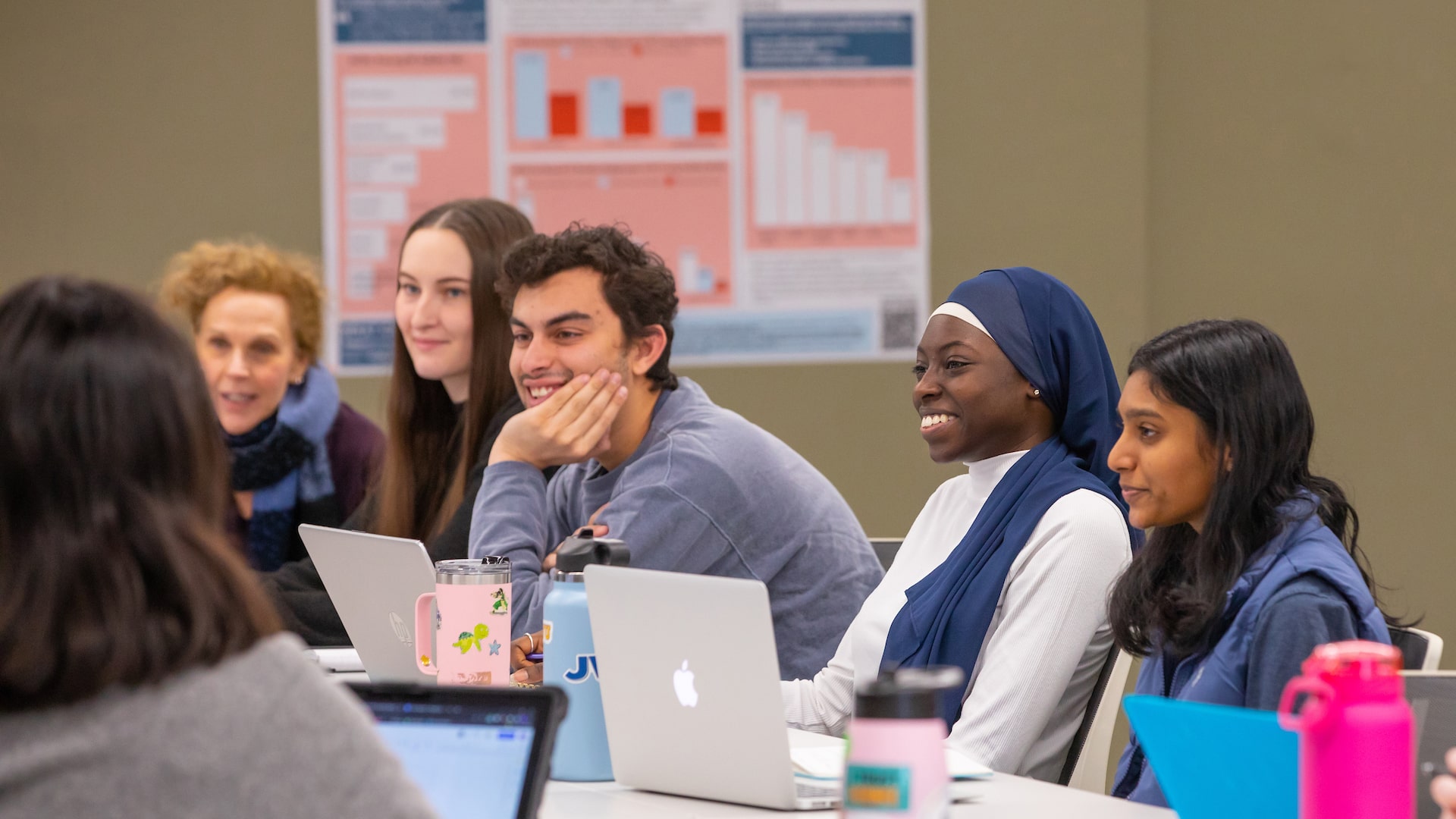Examining How Restrictive Masculinity Can Impact Depression
Research
“Associations between Restrictive Masculinity and Depression across Sexual and Gender Identities,” Rhode Island Medical Journal, June 2025
Researchers
Associate Professor Jonathan K. Noel, Ph.D., MPH
Abigail G. Nosal '26
Postdoctoral Teaching & Research Fellow Kelsey A. Gately, OTD OT/R
Associate Professor Samantha R. Rosenthal, Ph.D., MPH
Project Objective
Abigail Nosal '26, a student in JWU’s Health Science program, contributed to a study led by Associate Professor Noel that examines how rigid ideas about what it means to “be a man” affect mental health — especially depression — among young adults in Rhode Island. The research focus is on individuals from all sexual and gender identities.

Project Goals & Skills
This project explores how rigid ideas about masculinity —like avoiding emotions or always appearing strong — affect depression in young adults of different sexual and gender identities.
The study aims to identify which groups are most impacted and how depression may show up differently based on gender norms.
Through her work for the study, Nosal learned to analyze real survey data using statistical methods; she also examined mental health disparities through an equity lens. In addition, she also developed skills in research design, data interpretation, and communicating complex findings clearly. Ultimately, the project helps improve how we understand and address mental health needs, especially in men.
“Participating in research for the Rhode Island Medical Journal has been especially meaningful because it allows me to contribute to work that can positively impact people’s health and well-being.”
Results & Future Implications
The study found that belief in restrictive masculinity norms was linked to higher rates of depression, but only among cisgender heterosexual males. For other sexual and gender groups, this association was not statistically significant, suggesting different factors may influence their mental health. Higher perceived social status was protective against depression for cisgender heterosexual females and sexual and gender minorities. These findings highlight the need for mental health assessments and interventions that are sensitive to gender norms and tailored to different identity groups.
The Benefits of Working on Research
Nosal noted the benefits of working with the Center for Student Research & Interdisciplinary Collaboration (CSRIC): “Working on research has helped me learn how to think more clearly, ask better questions, and understand important issues in public health. Participating in research for the Rhode Island Medical Journal has been especially meaningful because it allows me to contribute to work that can positively impact people's health and well-being. These experiences have strengthened my writing and have shown me what it’s like to work collaboratively on a research team.”

